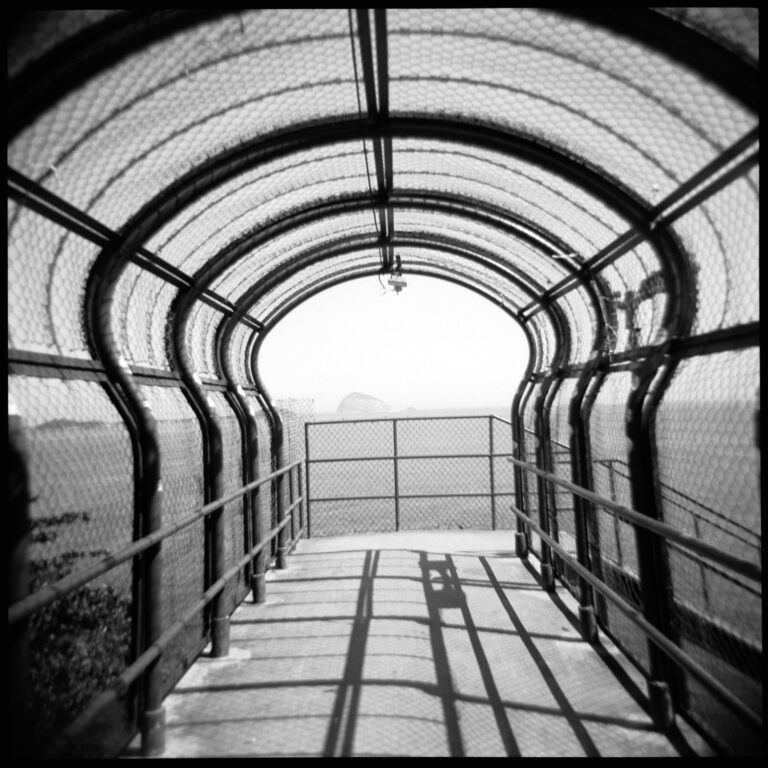So I took my cameras and paid attention.
Within a few days of being there and witnessing how stratified Brazilian society really is (I knew about it already, but witnessing it gives you a different kind of understanding), I felt that my image was going to be some sort of social commentary.
I paid visits to fishing communities along the coast near a beach town we crashed at for a week, to connect with them and to seek a reality I could not bear, but I did not find such a thing. I had in the back of my mind a memory from high school, when I studied an Italian author I’m not sure I remember (it might have been Giovanni Verga, but don’t take my word for it) that wrote something about how poor fishing villages are charming and pretty from the distance, but the reality of them – the smell of fish, the poverty, etc. – was repulsive from up close, and I wanted to investigate it. But I never felt it to be true. I have been to places around the world where men fish, where fishing men are very poor, where the smell of fish takes you to your throat, but I never felt that repulsion. Quite the opposite.
So when my sister and I landed in Rio, I kept looking for that complex image, à la Gruyaert, that would illustrate how humankind cannot bear very much reality.
However, I quickly came to realise that Rio is full of walls. I expected to fall in love with this beautiful city, but instead I found a place filled with fear. I walked around with a Holga around my neck, and people would stop me in the street telling me to hide my camera because “they” would steal it from me – a plastic camera that shoots film!
Underneath the apparent nonchalance of the beach metropolis, of the sun-filled cheer of Ipanema and Copacabana, of the myth of the fun-loving Carioca, was a city divided by invisible walls, built out of fear. I was a gringa, and I wasn’t getting what I was looking for, I felt trapped inside a gilded cage and I wasn’t sure how to work around it because fear is contagious and I wasn’t so sure of myself anymore.
That’s when Amy reached out to check in with me, and as I was sharing my frustration with Amy, it struck me: the cage is the subject. It’s how humans shelter from a reality we do not want to get involved with, it’s how we keep the threats out, it’s how they make ourselves feel safe. Some build walls, others live in caste societies, but there is always a cage. And all of a sudden, me the observer, I started experiencing Rio de Janeiro differently.
On the day I made that realisation, we were scheduled to visit the favela of Vidigal – supposedly pacified. My sister had mixed feelings about doing it, mostly having to do with the ethics of touring such communities, but I wanted to do it, because it’s a way to escape the cage, albeit artificially, a way to look outside our position of comfort and privilege, connect with other humans.
That tour was incredible, the guide took us around the community, showed us the good, the bad, the ugly, he explained very pragmatically the cost of poverty in these communities, and how unsafe it feels to live in them, but also, and this struck me, how unsafe and scary it feels to walk outside of them when you belong there. So these walls of fear work both ways. I will not go into the details of it, however if you find yourself in Rio, you should absolutely do it because a lot of the experiences lived in Vidigal are actually very common around the world, but in Vidigal you have a guide to walk you through them, and he is good.
During the tour, I took photographs when it was safe and refrained when it wasn’t. I’d carried a Holga and a little rangefinder with me. I loved the tour in more than one way, but I wasn’t sure I was really getting somewhere, that is until at the very end, when we left the favela through this pedestrian bridge. The exit. It was looking over the horizon, completely covered in chicken wire, and it had the shape of a keyhole.
That’s what humankind does, we cage each other and we cage ourselves in, in an attempt to feel safe and protected, because we cannot bear the complexities of reality, which feels oh so risky, filled with too many dangers.
PS: on a side note, I also felt it was very symbolic to make this prompt about cages, because in T.S. Eliot’s poem, this line is actually being pronounced by a bird, and humans have a tendency to cage those.

